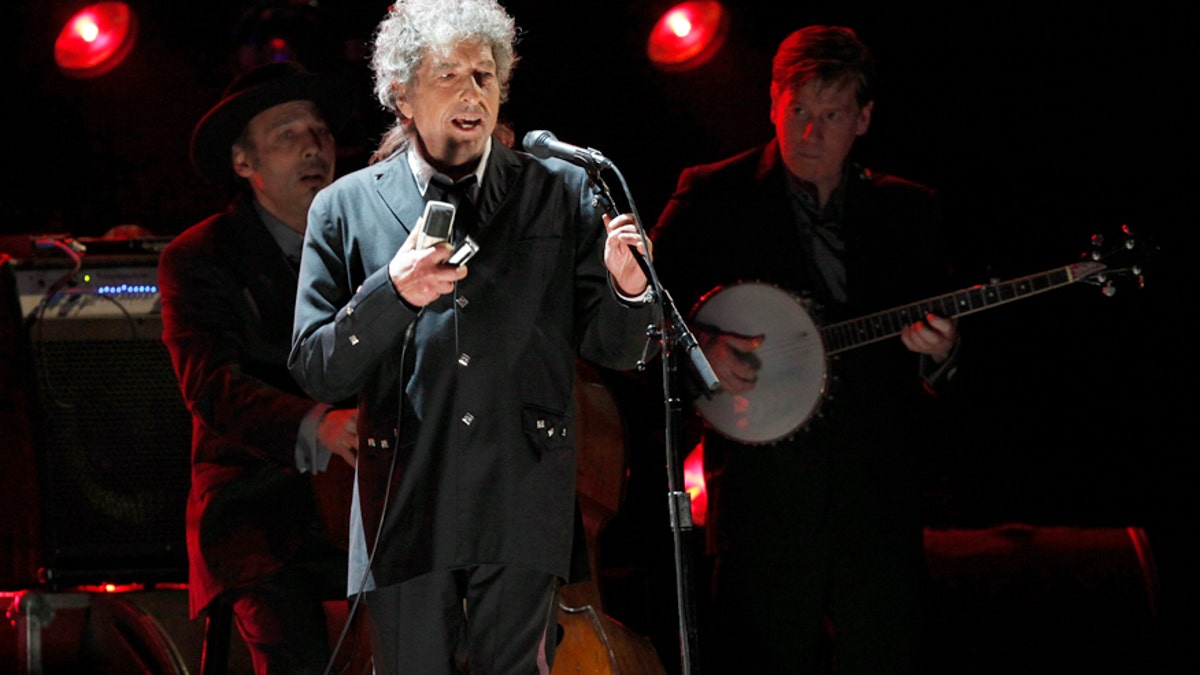
(Reuters)
May is the month of graduations and graduation speeches. Those wearing the mortar boards wait with a mixture of eagerness and anxiety to get on with the rest of their lives—whether more schooling or work or the unknown. Those of us in the crowd, family and friends of graduating students, hope that our loved ones will hear something that somehow will equip them for their future.
But increasingly these graduation speeches echo our popular culture, including its self-referential strains and shallow cultural liberation. Along with many of our movies and talk show hosts, these graduation speakers tell us, “Be true to yourself.” “Find your own way.” These slogans might give students a brief ego boost, but they’re ultimately not very helpful.
There are better, more valuable messages for students to hear--even from within popular culture.
[pullquote]
It may be a surprise that one of these messages could come from Bob Dylan. But it’s true --today’s students might have more to learn from an old Bob Dylan song than from their graduation speaker. Dylan’s 1974 “Forever Young,” originally written as a benedictory prayer, could also be considered the world’s shortest graduation speech.
May God bless and keep you always
May your wishes all come true
May you always do for others
And let others do for you
May you build a ladder to the stars
And climb on every rung
May you stay forever young
May you stay forever young
May you grow up to be righteous
May you grow up to be true
May you always know the truth
And see the lights surrounding you
May you always be courageous
Stand upright and be strong
May you stay forever young
May you stay forever young
May your hands always be busy
May your feet always be swift
May you have a strong foundation
When the winds of changes shift
May your heart always be joyful
May your song always be sung
May you stay forever young
May you stay forever young
The contrasts to our pop culture-fueled graduation speeches are striking. Today, if religion is referenced in public settings, we expect it to be generic and so to lack any impact. But Dylan’s lyrics are full of particular and concrete religious references.
His song opens with the words of the benediction in Numbers 6: “The Lord bless and keep you.” There’s the allusion to Jacob’s vision of a ladder in Genesis 28, which connected earth and heaven and had angels continually ascending and descending it. Dylan’s wish for generosity given and generosity received descends from a myriad of reflections on the Golden Rule, including the prayer of St. Francis with its call for mutuality.
For decades now, our schools have put great stock in things like dialogue, cooperation, and conflict-resolution. But Dylan’s lyrics are a call to action. He encourages his listeners to do, to climb, to grow, to be courageous, to stand fast, to have busy hands and swift feet.
Although all listeners can find resonance in this, Dylan’s words seem especially relevant to boys and young men, some of whom have been left cold by educational trends and left behind period. They’re among those today who especially need to hear that disciplined and principled action can be part of a good life well-lived.
We regularly hear calls for courage in graduation speeches, often in the context of some political cause. But Dylan reminds us that some of the least dramatic but most vital type of courage needed today is to pursue truth and righteousness in a world that often doesn’t recognize them. He reminds us of the satisfaction that comes from living good and honorable lives, and from encouraging future generations to do the same.
We hear plenty about youth today, often understood as a separate and static caste in our society. But Dylan reminds us that the job of the young is neither to fight the man nor to play the Peter Pan role.
If we hear only Dylan’s refrain, his song can be reduced to this type of simplicity. But if we listen to the whole song, we’re reminded of the full and true promises of youth. They’re neither revolutionary nor frivolous. Rather, they’re tied to the pursuit of truth and righteousness and the hope of living out meaningful vocations.
So in this graduation season, if you or your loved one hears some thin gruel from a graduation speech, consider supplementing it with Bob Dylan’s rich and morally-grounded advice for young people.
